Science & SkepticismThe Posidonia Green Project
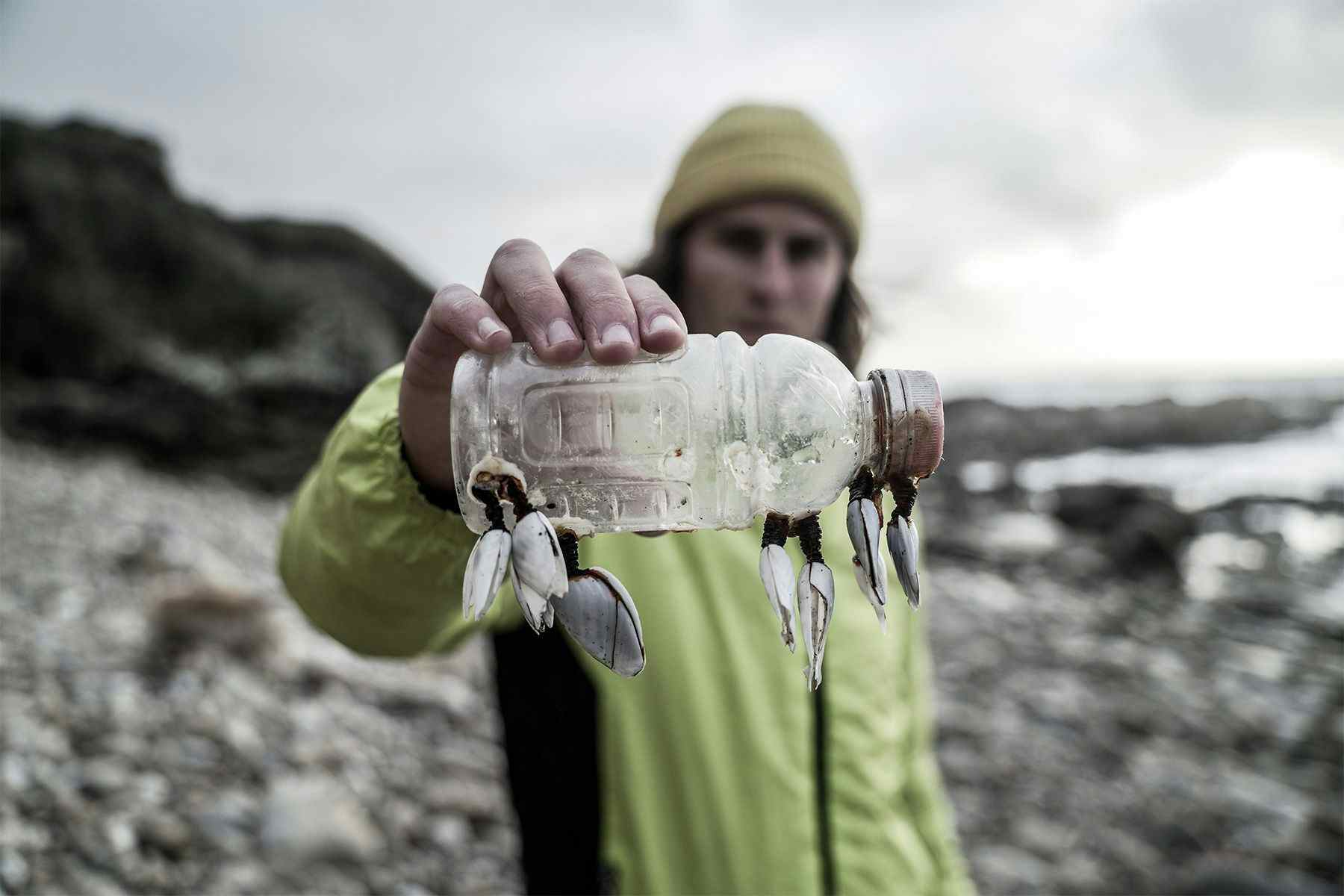
Behind the scenes of an Environmental NGO with Vanessa Sarah-Salvo
A fair share of the promotion of and actions toward environmental conscience and (more) sustainable attitudes comes from individuals-turned-organisations that couldn’t simply sit and wait for their governments to take the helm and adjust the course.
Italian-born Vanessa Sarah-Salvo is one such person. With a PhD in Environmental Science (Department of Marine Science) from the University of Genoa and over two decades experience working closely with environmental NGOs, she has both the theoretical background and the field experience under her belt. Vanessa has recently joined forces with Posidonia Green Project – a Spanish-Italian organisation that operates along European coasts toward maintaining the health of its marine environment.
In the following interview, Vanessa gives us an insider’s view of environmental NGOs, and shares her own views and lessons from this journey so far.
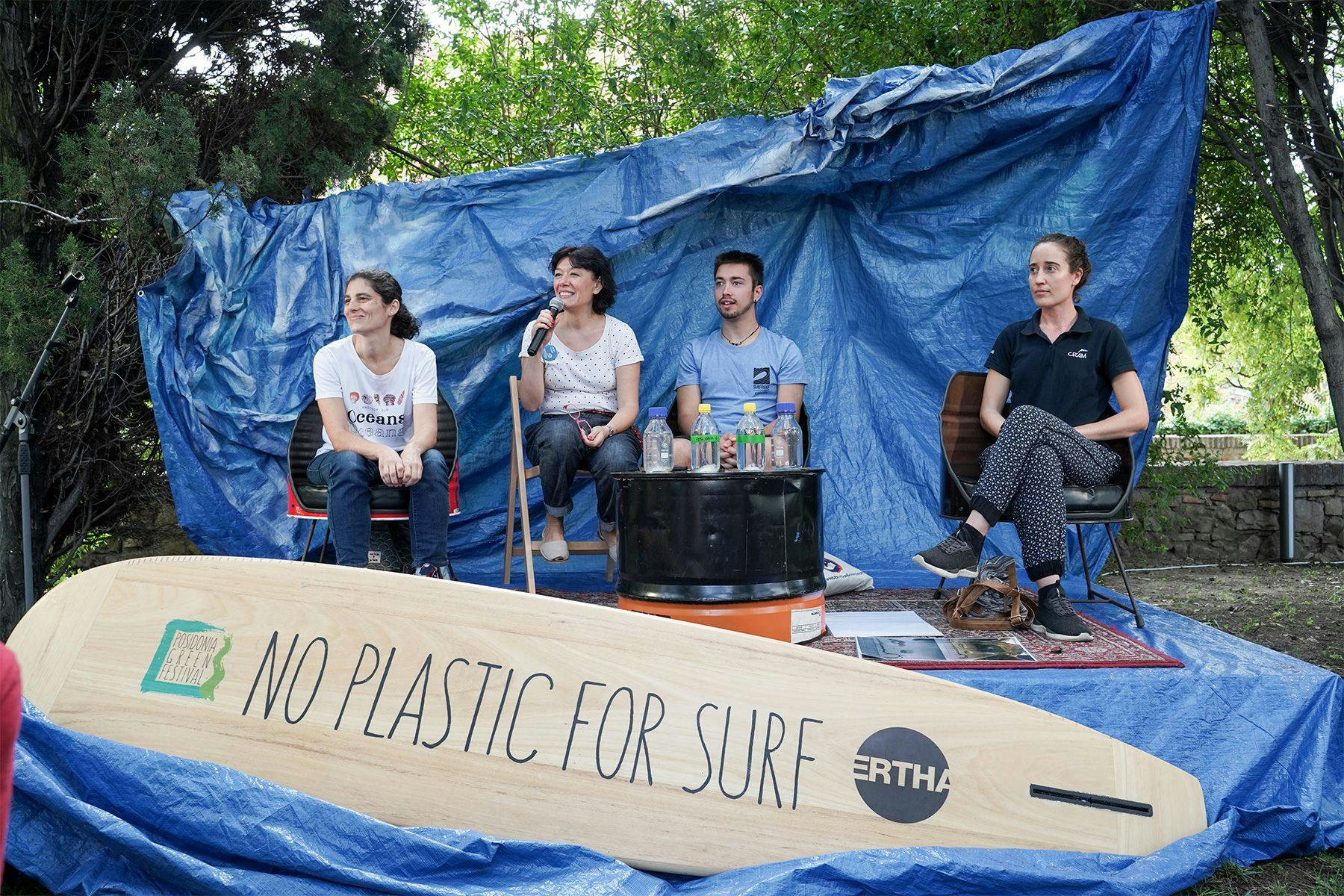
You have worked in several environment-related institutions, from Fundacion Desarollo Sostenible to IUCN, Surfrider Foundation Europe, and now Posidonia Green Project. From an administrative and philosophical perspective, what are some things these organisations have in common?
The protection of the planet is the common link between these organisations although with different approaches and targets. In each one of these entities, I have learnt something that I now put into practice at Posidonia Green Project. Some of these organisations are more institutional, such as the Spanish Committee of IUCN, with a quite complicated internal governance, while others are linked to youngsters, centred on grass-roots movements and functioning with volunteers.
I’ve had the opportunity to work in networks and synergies with experts making connections between science, culture, communication and the community. At Posidonia, for example, the scientific content is a solid basis of the dialogue that we would like to maintain with citizens and institutions. If there is some room for mobilisation, the core of the activities focuses on ocean literacy and responds to some of theUnited Nation’s 17 Sustainable Development Goals of the Agenda 2030 (the UNSDGs)
And from an environmental point of view, what are some initiatives, programmes, and/or frameworks that you have witnessed to be effective throughout these institutions?
There were a lot of actions such as the beach clean-ups, international recommendations or training courses addressing sustainability; in the framework of each organization there are emblematic projects related with their approach. The list would be very large but the best experiences were about networks and synergies, achievements reached by means of working together. All these organisations are a part of and are working inside institutional groups or movements of change-makers. Big achievements are only possible when the organisations are working together.
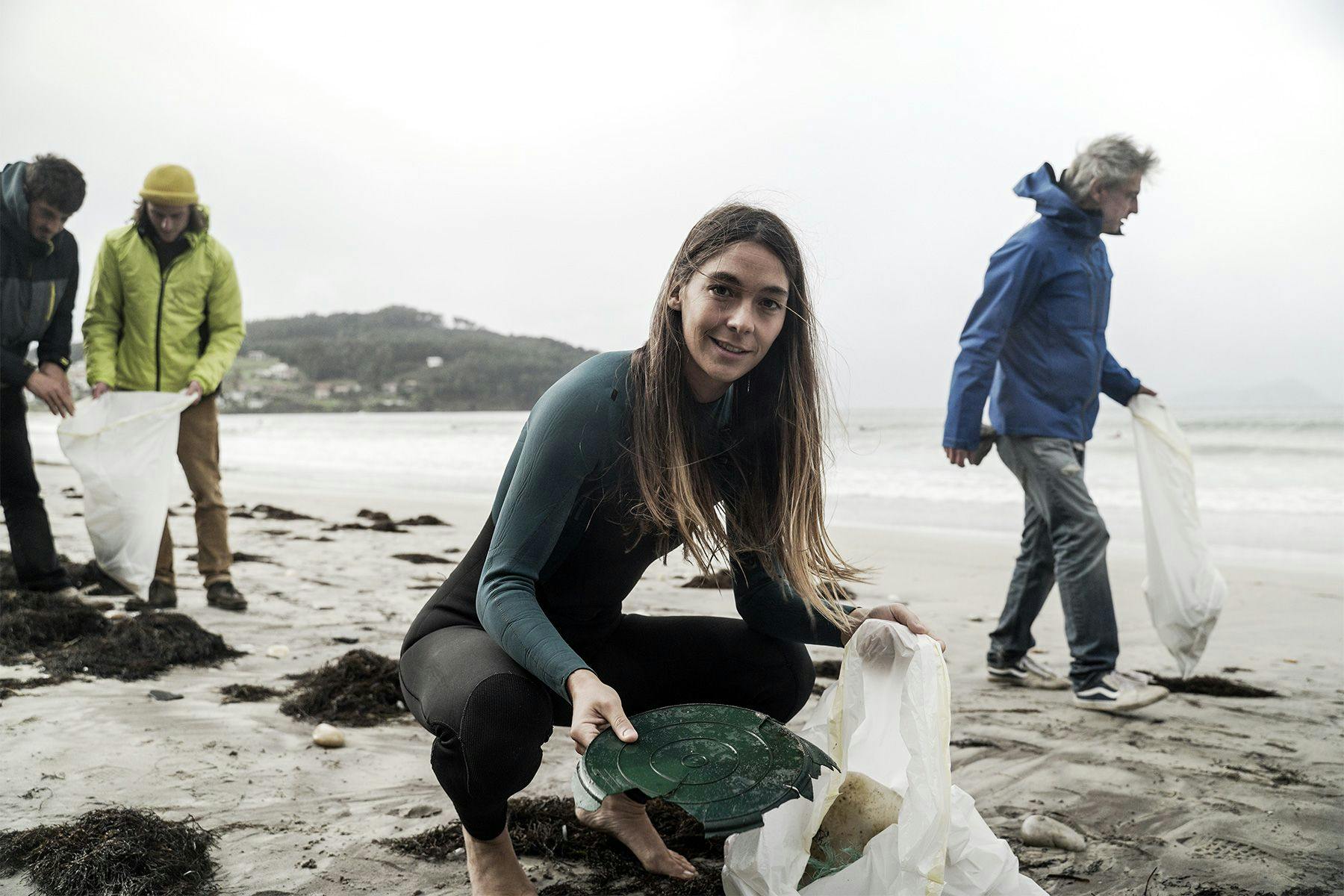
You have also been a part of the scientific community addressing environmental matters. In this context, how has the process of reforming environmental policies been taking place?
During international meetings, attendees are working tirelessly to identify impacts and potential solutions – but there will always be someone who disagrees or lets decisions fall in favour of production and the growth of our capitalist system. I think it’s human nature: there is cultural resistance to changes for all of us, and as society, it’s frightening to see something different from our current lifestyle. Yet, we pushed the planet to an irreversible situation that is taking place faster and faster, but we don’t know how to stop it. From a theoretical point of view, we have all the info yet we don’t know how to move forward with it without changing our lifestyle. So, we are going through in baby steps – but these are not enough.
What would you say are the greatest potentials of NGOs?
NGOs have the huge privilege of hatching networks to make dreams come true and their role is extremely important by representing its core issue: to be a link between society and the rest of the world. For instance, marine environmental protection organisations spread Ocean Literacy– or what the IOC of UNESCO defines as the understanding of the ocean’s influence on you and your influence on the ocean – and promote changes as campaigns group at legislative level. The key role, and therefore the prime capability and strength of the organisations, is to translate the scientific language or legal jargon into day-to-day lexicon for the society. Moreover, NGOs have to be able to raise up the voices of society to reach decision-makers as a driving force in lobbying. We have the honour to speak on behalf of civil society with decision makers, public institutions and private sector to boost the protection of our rights. In my specific case, these rights are about enjoying a healthy planet for living in harmony with the ecosystems.
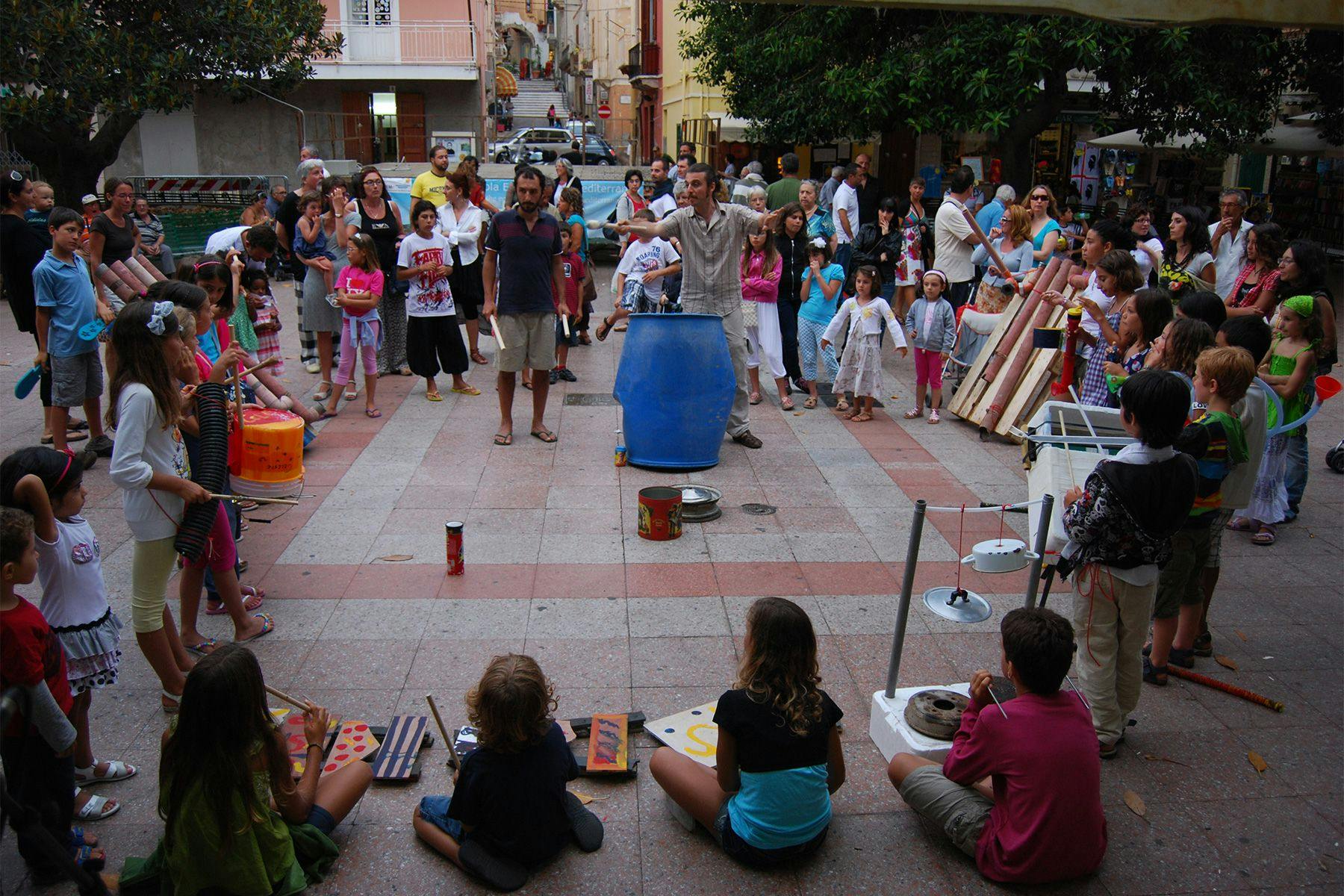
And the greatest limitations?
The limitations for the organisations are mainly within the internal structure – these can be resource-related or management. An important barrier is the misunderstanding of roles such as activists, volunteers, and professionals. These adjectives can cohabit the same person – but that isn’t always the case. Those could represent steps in the personal and professional evolution of a person inside an organisation, but in any case, some requirements have to be met for each of these roles. Sometimes, with or without acrimony, organisations offer to very enthusiastic volunteers tasks that are more befitting to staff, without giving them proper tools by means of a specific training period. When it comes to environmental protection, for instance, nowadays there are a lot of volunteers carrying out environmental education programs without the proper background. The same thing is happening with lobbying, negotiations, and project management, where a qualified person with knowledge should be coordinating. The purpose of volunteers and activists is very important because they are spreading messages, supporting data collection, and contributing to making real changes; they are the backbone of an organisation, the voices of the campaigns. But they shouldn’t manage lobbying, fundraising and educational projects. This overlapping of roles ultimately undermines the organisation, affecting their reliability and threatening audience disengagement.
In the last 5 or 10 years, there has been a change in people’s mindsets concerning NGOs. Some years ago, a person concerned became a member of an organisation; nowadays, they set up a new one! I really don’t know if this is because the existing ones are unable to answer the demands of society or if setting up a new NGO is also a more interesting way to get income. Anyway, NGOs and associations are fast-growing and, in some cases, fracturing the potential of the actions and jeopardising their effectiveness. It’s a quite new phenomena appearing in the last 5 years and becoming stronger during the last economic crisis. With time, however, this could hamper the capability of organisations to lobby or even cause the loss of professionalisation inside NGOs.
All that being said, not all the weight should be left on the organisation’s shoulders – as well as governments, each individual must be held accountable and responsible for the changes they want to see. In your opinion, what are some actions the general public can – and should – take concerning the marine environment?
I like the word co-responsibility. The whole society is responsible for our planet at different levels. Public institutions, Research Centres, NGOs and citizens with various roles are in charge of the planet. As citizens, all activities, as well as all choices, affect the system and the planet. There is a general misconception of the idea that “We must act” in which a common interpretation is: great actions, set up an NGO, organise a protest or volunteering programme. Nevertheless, to become a change-maker our day-to-day life is crucial. Consequently, where people are buying and what they are consuming could transform the world. Advancing toward a zero-waste lifestyle or using sustainable means of transportation to get to work are more effective behaviours than occasional beach clean-ups. Likewise, the quantity of waste people are producing at home is affecting the sea and the magnitude of oil used threatens the planet – in this case, “oil” meaning plastic, electricity, and fuel. Therefore, being aware of the production and consumption system in which we are in is essential.
All our movements are activism: where we buy our bread, the TV- show we watch, the news we listen to, the brands we purchase, the restaurants where we eat and who we vote for. A responsible society is aware that all decisions are affirmations of human rights, planet conservation, democracy, etc. Each time you buy a product your statement is: “I’m OK with the social, environmental and economic topics of this brand”; “I’m going to use this item because I somehow need it”; “I’m alright with its (over)production”. People have the power but society is still learning how to use it. So, if someone wants to act, they can do so by supporting organisations as they can, helping their neighbourhoods and environmental surroundings, reducing, reusing and recycling, getting informed, always questioning, and little by little changing their habits.
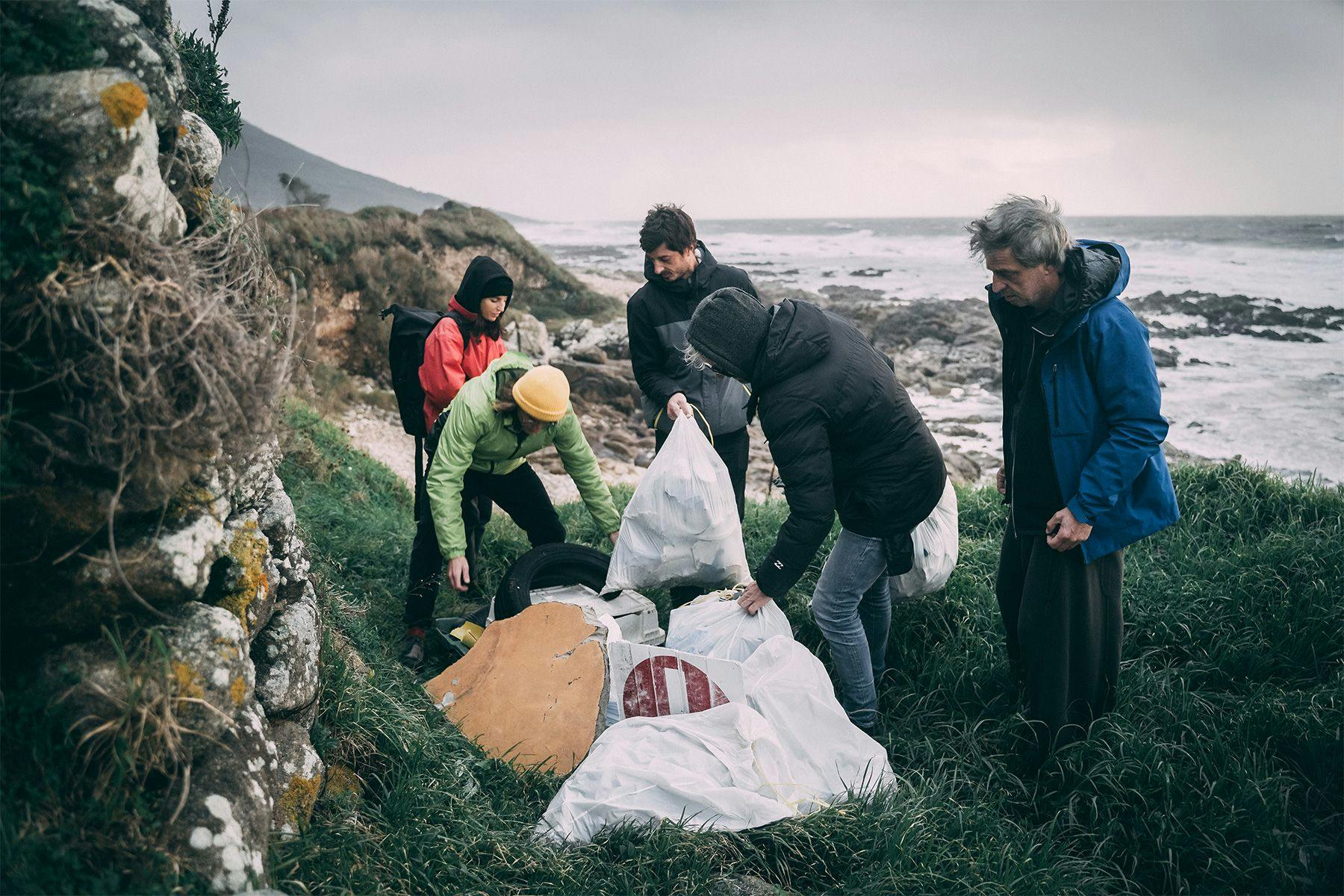
What are some of the lessons you have learned – both as a professional and a human being – while working with NGOs?
At professional level, I’m sure the capability to work in networks creating synergies to achieve noticeable goals. That also touches the human point of view: the teamwork in inspiring groups. Also, the importance of what Gandhi said be the change you want to see in the world. Last of all, that we are human and full of mistakes and incoherences therefore, NGOs are also vulnerable individual actions.
Now a Scientific Director at Posidonia Green Project, what are your main responsibilities?
Mainly I’m having fun working! I started at the end of 2019 as Scientific Director of this international NGO based in Spain – although I met them in 2017 while collaborating in the framework of common projects. Together with other inspiring people, I’m working to strengthen the science-policy interface by developing evidence-based solutions for the ocean health recovery. Putting together my experience at university, at research centres and in the NGOs, I’m coordinating the scientific strategy in line with the goals of the organisation. We are building up synergies to achieve the SDGs (Sustainable Development Goals) such as healthy seas, change in the production and consumption system, act on climate change adaptation and mitigation, and increasing coalitions and alliances for the harmonisation of our way of life as part integrated in the ecosystems. We are also managing several scientific projects for gathering data to better understand the systems as well as to develop the lobbying actions in the areas in which we work in: marine litter, climate change, sustainable fishery, and governance and environmental protection.
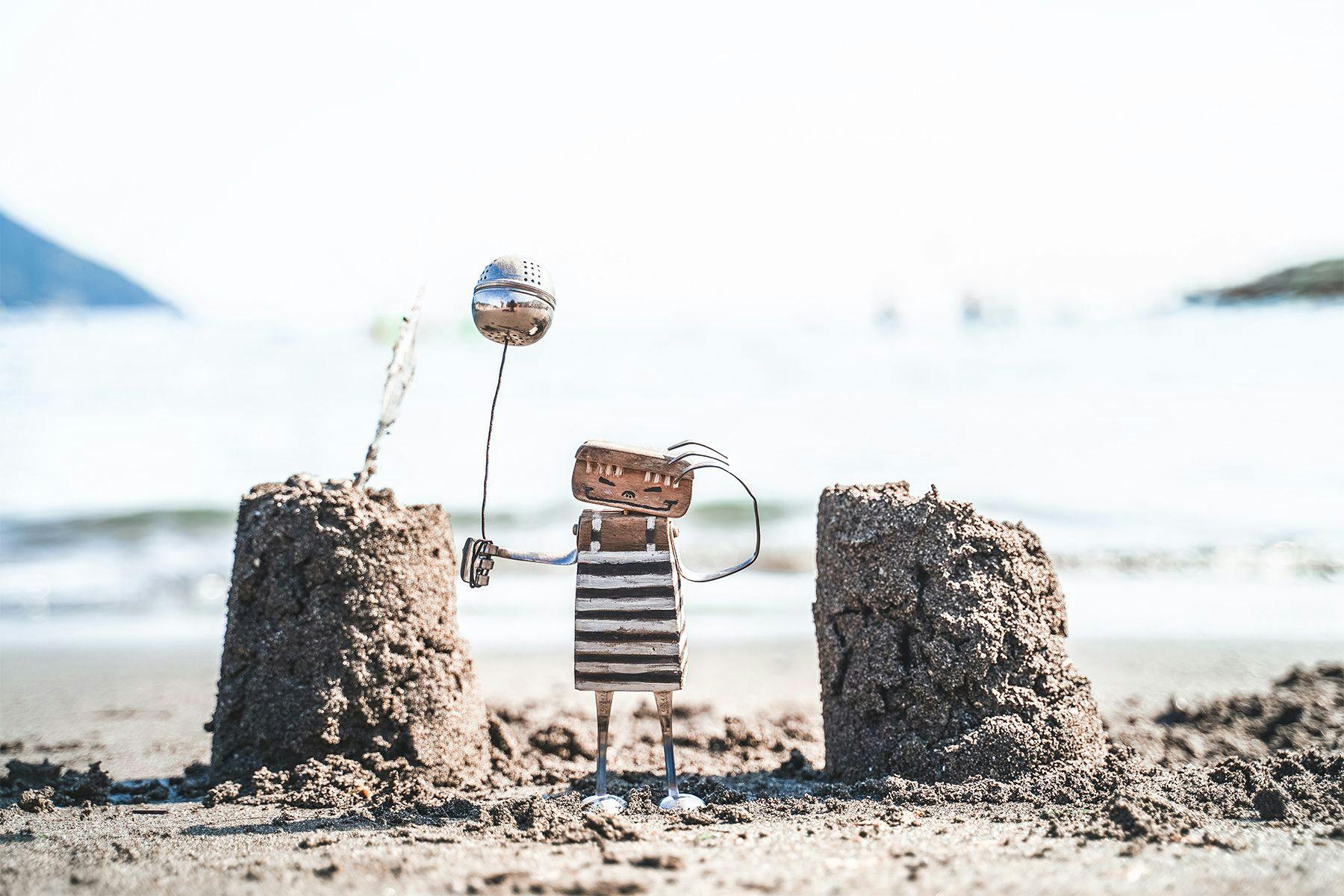
One of these projects is the Surfstainable platform, which has been under-development since 2017. Can you please tell us a bit more about it?
A coalition of three organisations, led by sea lovers with different focuses but just one passion, started the platform Surfstainable. Posidonia Green Project, Ertha and Slow Future Creative Blackboard represent the core group and founders; they are dedicated to environmental protection, sustainable surfboard creation, and alternative and environmental-friendly communication to a changing narrative, respectively. The platform is aimed at raising awareness of ecosystem services, specifically amongst surfers and ocean lovers, about the provision and regulation of cultural and supporting services the ocean gives us and therefore boosting a conservationist attitude. The platform will be gathering experiences, initiatives, and actions of other organisations and professionals such as surfers, artists, communicators and researchers, collecting data to increase knowledge about the services of the marine ecosystems. This heterogeneous citizen science platform will support awareness, make connections between members, best practices and knowledge-exchange, and become a huge grass-roots movement collecting data about the assistance and support and life that the sea is giving us. Just to give a very brief list of the benefits we get from the oceans: energy, seafood, biomedical, transport, coastal defence, climate regulation, control of pathogens, educational, spiritual, recreational, heritage, primary productivity (O2!), biodiversity maintenance, nutrient recycling, and many more.
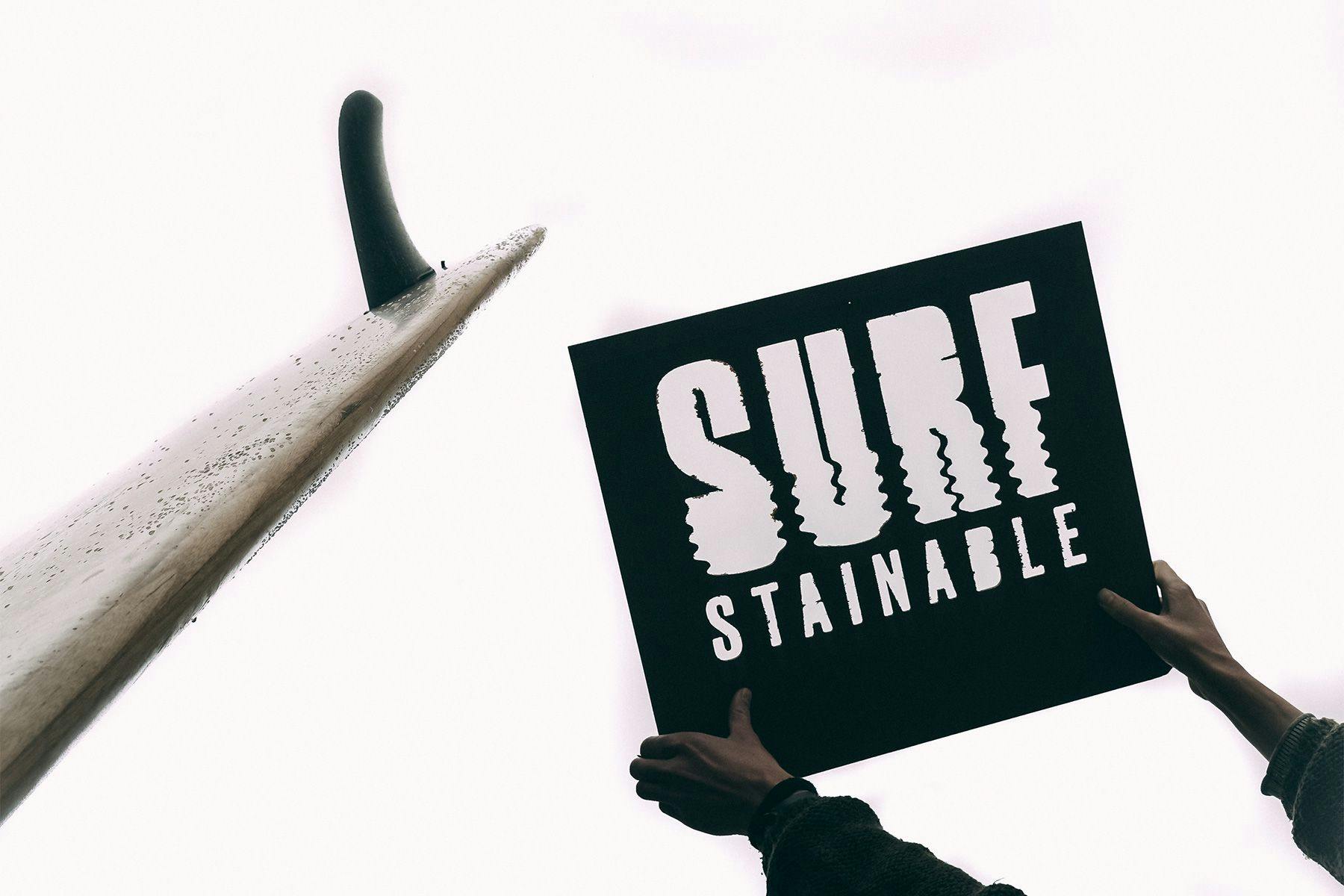
During your time at Surfrider Foundation Europe, and now with Posidonia Green Project, you have met and worked with several surfers. How has the surfing community been engaging/contributing to these foundations?
I worked at the Spanish office of the European delegation of Surfrider Foundation – the European one is slightly less resourced compared to the US headquarters in terms of management, contents and impacts. A lot of the foundation staff and volunteers are surfers, and there were some surfers as ambassadors to support the message. Anyway, without considering brands, there is a karmic connection between surfers and the ocean. In the last few years, a lot of surfers have become involved in actions and organisations to protect the sea. There is a spiritual relation between the surfers and the ocean and, as result, many marine environment organisations around the world tap into surfing and volunteering.
At Posidonia Green Project, surfing is part of us but not the core. The founders are surfers and a lot of projects use surfing for monitoring, campaigning and coastal protection. That is the case of the aforementioned Surfstainable project, where ocean lovers and surfers are invited to be part of a collaborative platform and get closer to the notion of ecosystems services, enhancing the marine protection, sharing knowledges and acting in citizen science networks. During the first Surfstainable surf trip, Spanish surfer Garazi Sánchez supported us. In any case, surfing is part of our organisation as a tool to boost the marine ecosystems protection.
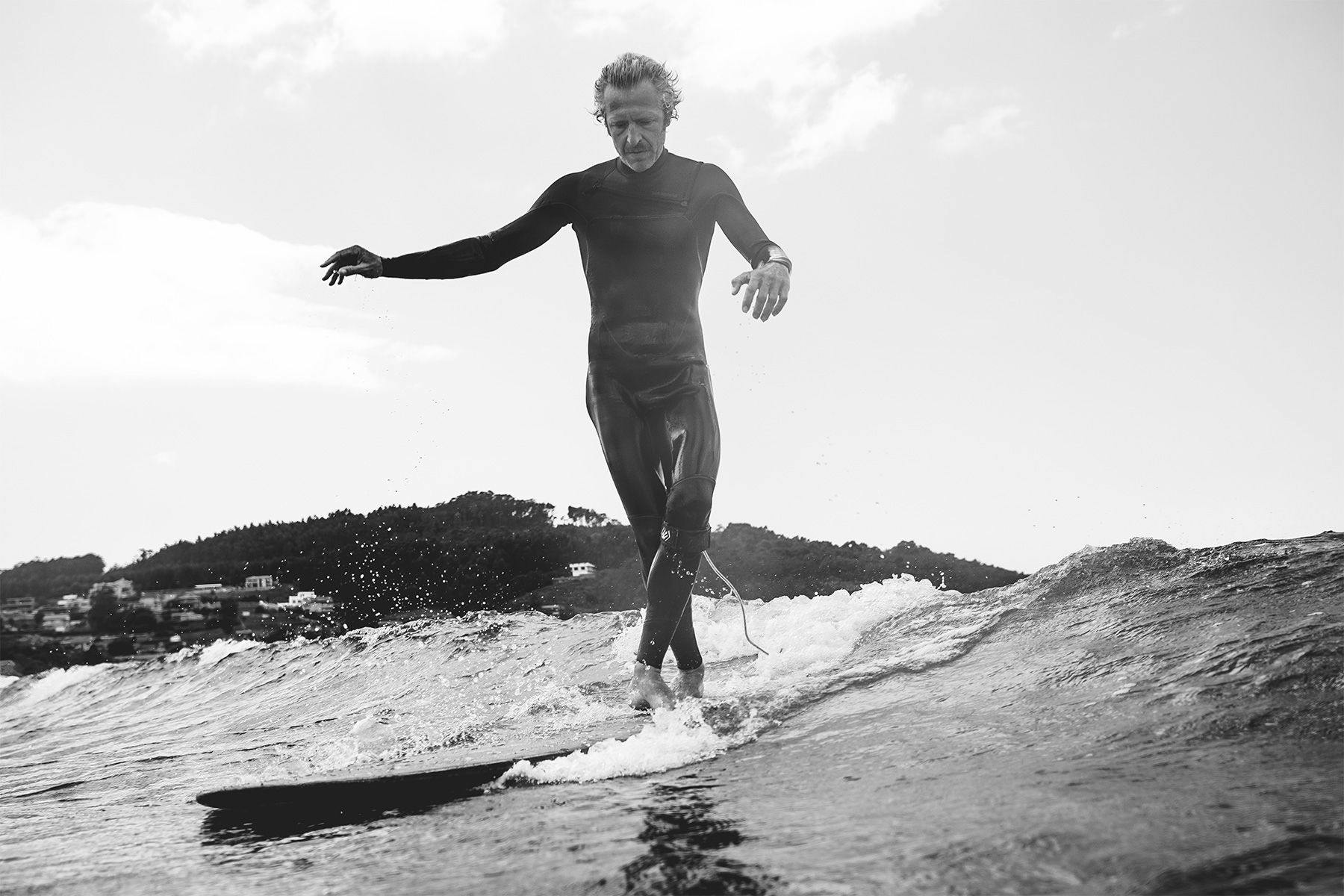
In your opinion, why is it important that surfers be involved with marine conservation NGOs – and how should they go about it?
Surfers enjoy the ocean and its waves; the ocean give us services: ecological, cultural, socio-economical and recreational. Therefore, it’s our obligation to give back to it by taking care of it. So, each ocean lover has to act on environmental protection in one way or another. As for how to do that, there are several ways and some concerns, namely, don’t duplicate efforts and be careful of “Instagram organisations”. The first way to assist is to check if there is an existing organisation working in your area supporting the same issue that you would like to act on. This is to avoid fragmentations and jeopardising campaigns or important actions in which a critical mass is required. Also because there are a lot of regulations and/or scientific criteria that have to be taken into account in a volunteering activity, even if theoretically easy such as a beach clean-up. Therefore, it’s recommended to realise volunteering actions along with a proper organisation with scientific, legal, social and geographical knowledge of the issue and surroundings. While Instagram organisation reach a lot of the surf community, there are some organisations using (or misusing) the “surfer’s look” of attractive images to boost activities – but with few scientific points and without substances. Be careful about that! Before collaborating, ask for permissions, legal constraints, protected species, environmental topics in the area and how the action planned could affect them in spite of its typology. If the answers of the coordinating entity are not clear or exhaustive re-evaluate your cooperation.
What other projects have you got in the pipeline at Posidonia?
We are currently working in a project called Ocean Girls For Healthy Sea in which several international women’s sailing and surfing organisations are collecting data from surfing spots in Europe, South and North America about marine pollution. This project is a coalition that Posidonia Green Project is leading with a PhD student Nathalie Fox, and acting in collaboration with Surf Sister for Science, Groundswell Community Project, Exxpedition. This is the kind of projects we would like to invite people to be part of on the platform in which there is collaboration and studies to reach scientific, cultural and social goals. All data collected will be shared on the platform and gathered with trained volunteers in open science. All organisations and people interested in becoming part of this open tool are welcome – feel free to contact us!
Finally, as someone with a degree in Environmental Science and years of experience working and researching the field, what are your biggest fears and hopes for the future of the environment?
I don’t know if the fears are related with my degree, but there are a lot and, unfortunately, less than hopes, at least lately. More than fears are is sense of helplessness. I have now reached more than 20 years working and studying the marine ecosystem and the impacts on it. But, year after year, it seems that society hasn’t learnt what we have to do. Scientists are highlighting impacts such as pollutants, climate change or marine litter, sometimes with terrifying messages such as “By 2050, plastic in the oceans will outweigh fish.” Nonetheless, legislations, production investments and consumers behaviours aren’t really changing. In my opinion, these changes are too slow considering the current environmental crisis. Therefore, I can say that my fear is the idea of “doing something for nothing” or “trying to do something in vain.”
Conversely, the hopes are reflected by many activists – in some case visionaries – that I have had the opportunity to meet thanks to this wonderful work that I do. The NGOs I have worked for gave me the opportunity to network with a lot of people involved in projects to change the world. Spending time in public events (such as in our Posidonia Green Festival, one of Posidonia Green Project’s emblematic projects dedicated to ocean literacy) or at meetings with some of the coalitions in which we are involved in (like Ibiza Plastic Free, which promotes the elimination of single use plastic in the tourism industry in Spain) is a privilege. When we are together discussing or planning projects, wondering if the actions designed will be effective, there is a kind of energy that I cannot explain but it’s something special. I have had the chance to meet wonderful minds and great change-makers capable of recharging your energy, readying you to get on with your work. I’m lucky to work with the sea, for the sea, and in the sea: it is my passion, therefore the hope is that within the blue planet is the capability to give us breath-taking landscapes, sunshine, and waves.
You can find out more about Posidonia Green Project’s work at www.posidoniagreenproject.org